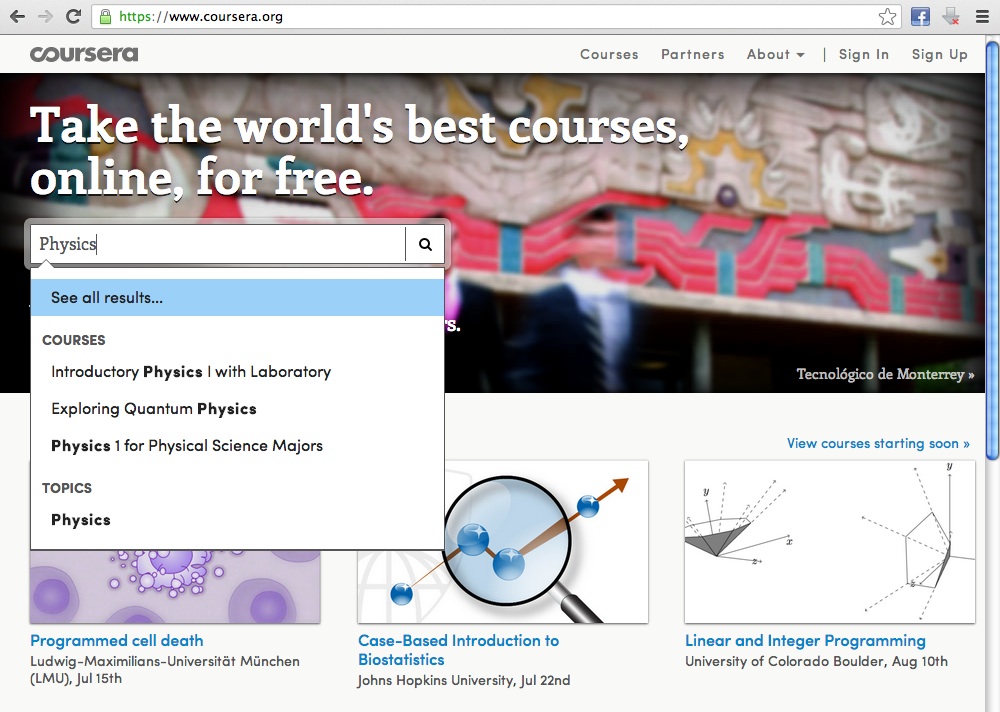
Coursera, an online community aimed at presenting free online education to the public, announced in May that it had contracted with Victor Pinchuk Foundation to create translations and subtitles for the courses it offers.
Begun in March 2012 by Stanford University professors Andrew Ng and Daphne Koller, Coursera currently has four million users worldwide and 83 partners. In addition to course material from top universities including Duke and the University of Pennsylvania, Coursera provides interactive discussion forums and course material feedback.
According to Tennessee Senator Bob Corker, whose state’s university system recently partnered with Coursera, the site “help[s] ensure that our young people are prepared for the jobs of the 21st century.”
The number of users is steadily rising, and many educational institutions are beginning to realize the potential of online learning. Yet the idea of online learning has also raised doubts regarding the quality and content of the courses.
Shin Young Park, a sophomore at the LA Center for Enriched Studies, believes that online education does not foster the same benefits of face-to-face interaction and may negatively affect traditional institutions. In fact, San Jose State recently paused an experimental online learning program due to poor student performance.
“I believe online education defeats the purpose of instructor-student interaction and won’t be as effectual as face-to-face learning,” Park said in an interview. “Furthermore, it could put many education institutes out of business because it is cheaper, less time-consuming and more convenient.”
William G. Bowen, who served as president of Princeton University from 1972-1988, has also expressed concerns about the economic effects of open online courses. Yet although Dr. Bowen has worried in the past about how Internet learning “might serve colleges and universities that are currently in the business of teaching students and awarding degrees,” he is optimistic about Coursera in his June 2013 book Higher Education in the Digital Age.
Though the debate regarding online education is yet to be resolved, it may prove to be a ground-shaking revolution in education accessibility.


